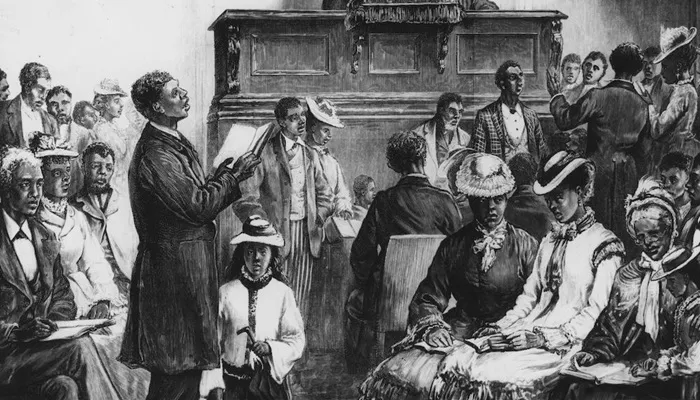February 3 has witnessed numerous pivotal moments in American history, shaping the nation through constitutional amendments, peace negotiations, and acts of heroism. This article explores several key events that occurred on this date, providing a detailed examination of their historical significance and impact.
What Happened on February 3 in American History?
The 1865 Peace Conference: A Last Attempt at Resolution
On February 3, 1865, a significant peace conference took place at Hampton Roads, Virginia, between President Abraham Lincoln and Confederate Vice President Alexander Stephens. This meeting was crucial as it represented one of the last attempts to negotiate an end to the Civil War. Lincoln’s position was clear: there could be no armistice until the Confederates acknowledged Federal authority. Conversely, Stephens sought an immediate armistice without such recognition.The discussions lasted approximately four hours but ultimately failed to yield any agreement. Lincoln’s insistence on the recognition of Federal authority reflected his commitment to preserving the Union and abolishing slavery. The failure of this conference meant that the Civil War would continue for several more months, culminating in the eventual defeat of the Confederacy in April 1865. This event is significant not only for its immediate implications but also for its representation of the deep divisions within the country at that time.
Ratification of the 15th Amendment (1870)
Another landmark event on February 3 occurred in 1870 with the ratification of the 15th Amendment to the United States Constitution. This amendment was a crucial step in the fight for civil rights, as it guaranteed that citizens could not be denied the right to vote based on “race, color, or previous condition of servitude.”The passage of this amendment was a direct response to the systemic disenfranchisement faced by African Americans following the Civil War. It aimed to ensure that newly freed slaves could participate in democracy and have a voice in their governance. However, despite its ratification, many states employed various discriminatory practices such as literacy tests and poll taxes to circumvent this right for decades to come. The 15th Amendment remains a cornerstone in the ongoing struggle for voting rights in America.
The 16th Amendment: A New Era of Taxation (1913)
On February 3, 1913, the 16th Amendment was ratified, granting Congress the authority to impose and collect income taxes. This amendment marked a significant shift in federal fiscal policy and governance. Prior to its ratification, income taxes had been deemed unconstitutional under previous interpretations of the Constitution.The introduction of income tax allowed for a more equitable distribution of governmental financial burdens and provided a steady revenue stream for federal programs. This change was particularly important during times of economic crisis, such as during World War I and the Great Depression. The 16th Amendment fundamentally altered how government funded its operations and expanded its ability to address social issues through various programs.
Heroism During World War II: The Sinking of USS Dorchester (1943)
February 3, 1943, is also remembered for an extraordinary act of heroism during World War II involving the sinking of the USS Dorchester. The transport ship was torpedoed by a German U-boat off Greenland’s coast while carrying soldiers and civilians. In a remarkable display of bravery, four Army chaplains—two Protestant ministers, a Catholic priest, and a Jewish rabbi—sacrificed their lives to save others.As chaos ensued aboard the sinking ship, these chaplains helped distribute life jackets and encouraged men to board lifeboats. When they ran out of life jackets, they gave their own away. Witnesses reported seeing them standing together on the deck, arms linked in prayer as they went down with the ship. Their selflessness became legendary and led to their posthumous recognition as heroes. In 1960, Congress established Four Chaplains Day to honor their sacrifice.
Cavalese Cable Car Disaster (1998): On this day in history, a tragic accident occurred when a U.S. military aircraft inadvertently severed cables supporting an aerial tramway in Cavalese, Italy. The disaster resulted in the deaths of twenty people onboard.
Birthdays: Notable individuals born on February 3 include Gertrude Stein (1874), an influential American avant-garde writer; Johnny “Guitar” Watson (1935), an American singer and guitarist; and Anna May Wong (1905), one of the first Asian-American film stars.
Conclusion
February 3 has been marked by significant events that have shaped American history across various domains—from civil rights advancements through constitutional amendments to acts of valor during wartime. Each event reflects broader themes within American society such as struggle for equality, governance evolution, and human courage in times of crisis. Understanding these historical moments provides insight into America’s complex narrative and ongoing journey toward justice and democracy.This exploration highlights how specific dates can encapsulate profound changes within society and serve as reminders of both challenges faced and progress achieved throughout history.
Related Topics:

